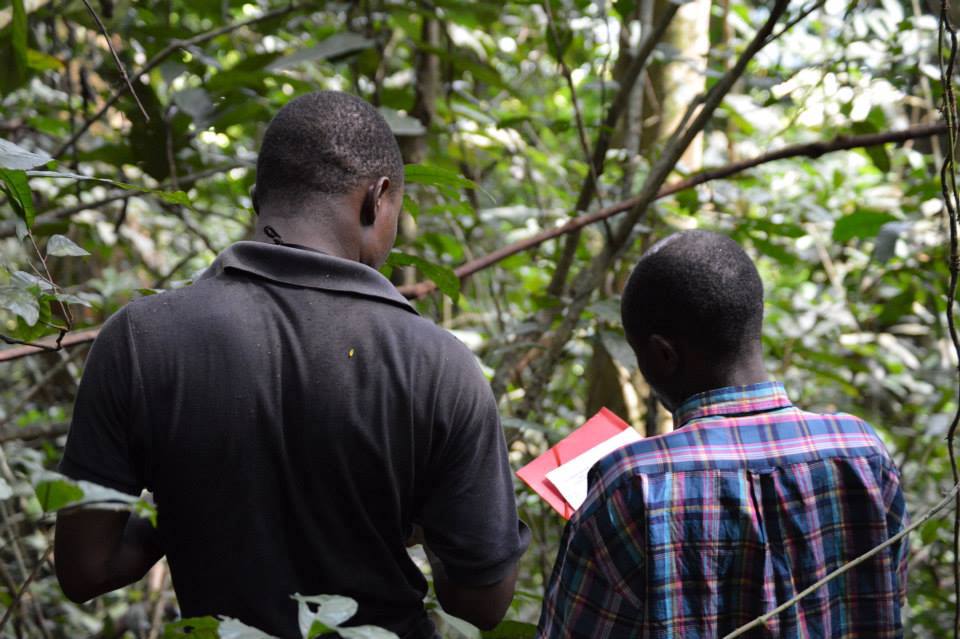Conservation projects tend to have limited resources and need to choose M&E designs that match those resources and that help them make good management decisions. This new guidance document provides a basic overview of M&E to clarify some common areas of confusion and misuse of terminology and to distill the basic components of M&E design into a series of simple concepts. This guide should help you understand key decisions you need to make and how those decisions may influence your ability to draw conclusions from your M&E efforts.
Download the guide here and start improving your M&E efforts today.

Researchers Allen Enokenwa and Peter Njumbe tracking data on chimpanzee nests in Southwest Cameroon.
This guide is one in a series of how-to guides designed to help conservation practitioners using the Open Standards for the Practice of Conservation develop and operationalize their strategic plans. These guides are sta
nd-alone documents, but practitioners will get the most value out of them when they use them together to support the broader process of moving from planning (Step 2) to implementation (Step 3).
The current list of guides (available at www.fosonline.org/resources) includes:
- Conceptualizing and Planning Conservation Projects and Programs (manual for implementing Steps 1 and 2 of the Open Standards)
- Conceptual Models: An FOS How-To Guide
- Results Chains: An FOS How-To Guide
- Designing Monitoring and Evaluation Approaches for Learning: An FOS How-To Guide (this guide)
- Developing High-Level Work Plans and Budgets: An FOS How-To Guide
FOS staff will continue to develop guides and other training materials for various steps across the Open Standards cycle. As the guides are published, they will be available on the FOS website and the Open Standards website (along with a peer-reviewed rating). The Open Standards website also contains implementation and operationalization guidance from other organizations, with Bush Heritage Australia providing numerous documents and examples based on their own experiences.

Recent Comments